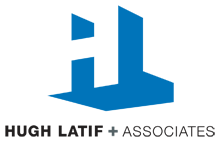So much has been written about the art of asking questions and how questions are considered even more important than answers. That is true, because questions seek to understand, clarify, and evaluate other people opinions, needs, actions, etc. Asking questions is known to build rapport and even intimacy between people. In healthy and good relationships, questions are welcomed as they help improve communication and help you learn about a person likes, dislikes, emotions, needs, opinions, choices, and so much more.
We ask questions in order to learn more information about something, and we answer questions to provide more information. Both asking and answering questions is part of how we learn. It also gives a good indication of our social skills. Generation Z typically uses texting to communicate quickly, and text messages are usually in form of questions to seek rapid answers and confirm actions. Communication happens but almost in a “telegraphic” style, instead of more wordy conversations in person, by telephone or body language.
Books on asking questions abound in the business aisle of your favourite bookstore. Here is a short list of best tips:
- Ask one question at a time. Otherwise, the other person won’t know how to focus their answer.
- Vary your questions and make them part of a conversation to avoid sounding like an interrogation.
- Use shorter questions when seeking specific answers. Sometimes “yes” or “no” is enough.
- Ask open-ended questions when you want a full explanation.
- “Why” questions tend to open the conversation and cannot be answered with yes or no. Closed questions have only one response, “yes” or “no”. They always include one of these verb forms: to be (are you…), to do (did you…) or to have (have you…).
- Asking “what” and “how” questions is a request for more information.
- Consider whether to widen or narrow the conversation through open-ended questions or close-ended questions.
In sales, questions are an important part of the sales process. Good questions can break the ice, help you get to know your prospect/customer quickly and establish a rapport. Questions are also the best tool for uncovering customer/prospect needs and pain points. This is called “qualifying a customer”. Another key skill in sales is becoming more comfortable with silence after asking a “closing question”. When someone says “yes” or “no”, it means that right now, they have nothing more to say on the subject—and that is okay.
As a management consultant, I use questions extensively in my work to uncover facts, get to the root of problems and challenges. Questions are also key to understanding people decisions, and actions. They are equally crucial when working on strategies, and for predicting future market directions and competitors’ potential reactions.
I would like to share my absolute number one “preferred question” that I use when recruiting, coaching, and mentoring executives. “Do you enjoy your job?”
Notice, I have used the word enjoy and not like. It is by far, a more revealing question. It also produces surprising results. When I ask it, I watch for body language and how the answer is communicated. A short hesitation or avoidance when looking into my eyes is certainly a red flag.
I did not study psychology but have learned through many years in management that the absolute key for an executive’s success is in enjoying their job. This is true for all people and all jobs. Simply put, people perform well when they are doing what they like to do, and they turn in poor performance when they are in the wrong job. No matter how much knowledge or ability they have, a key ingredient is in “loving one’s job”. I fully understand that no job is perfect and cannot be enjoyable every single day. Exceptions exist, of course, but one must truly enjoy their job and what the job brings in term of satisfaction.
My “closed end” question, of course, usually results in a “yes” or a “not”. So, a natural follow-up question is “why”. Whether the answer was affirmative or negative, this enables me to find out more information about the person skills, abilities, limitations, and passions.
Two last points to mention: questions must be clear, easily understandable with no fuzziness, and of course, the more the person trusts the one doing the questioning, the more likely they will answer their questions truthfully and directly.
725


